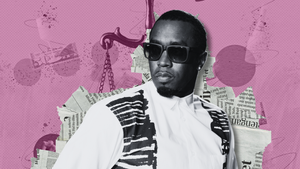Sean ‘Diddy’ Combs has been denied bail yet again - the third attempt by his legal team to see him released from prison to await trial on charges of racketeering and sex trafficking - despite his lawyers proposing a $50 million bond and a plethora of restrictions that they said their client would adhere to.
Judge Arun Subramanian said that there is “clear and convincing evidence” that there is “a serious risk of witness tampering” and that “no combination of conditions” would prevent that risk, even with $50 million at stake to guarantee Combs’ compliance with a bail order.
As an example of Combs’ past witness tampering, the judge cited the musician’s communications earlier this year, before his arrest in September, with a witness who was subpoenaed to testify before the grand jury that was tasked with deciding whether criminal charges should be brought against the musician.
Combs “initiated and had unexplained communications” with that witness before and after he testified before the grand jury. Lawyers representing Combs had “offered an explanation for some of these communications”, the judge said, but not all of them. Nor could they explain why Combs had deleted text message conversations he had with the witness.
Those communications are all the more problematic because Combs’ lawyers told the court in September that their client “did not reach out to grand jury witnesses ... he didn’t do it and he wouldn’t do it”.
There is also credible evidence, Subramanian added, “that Combs violated Bureau Of Prisons regulations during his pretrial detention to obscure his communications with third parties”.
That included paying other inmates so he could use their phone accounts to make calls to people not on his approved contact list, and instructing family members and attorneys to add other people to calls so “their communications were more difficult to trace”.
The judge also referenced the recent disagreement over the prosecution’s use of hand written notes taken by Combs while in jail, which were photographed during a routine sweep of the prison where he is incarcerated. Those photographs were shared with prosecutors who then used them as evidence that Combs has been seeking to influence witnesses while in jail.
Combs’ lawyers argued that, because those notes related to his legal defence, they were covered by the principle of attorney-client privilege and should not have been seen by prosecutors. As a result they were not considered by Subramanian when reviewing Combs’ bail application.
However, he did consider a court session on 19 Nov where the notes were discussed. At that session, Combs’ lawyers said that the notepad that was photographed had been clearly labeled as ‘legal’, meaning it should have been apparent to everyone that the notes in it were covered by attorney-client privilege.
But at a subsequent session they admitted that they weren’t 100% certain that was actually the case and it was possible Combs had written ‘legal’ on the notepad after the photos were taken.
The judge said that the “misrepresentation” of the facts at the 19 Nov session, where Combs was present, “bear on whether the court can be reasonably assured that any conditions it imposes will be followed, or whether - through inadvertence or active subversion - they will be broken, and the community’s safety threatened”.
Combs’ team will almost certainly appeal Subramanian’s ruling, though it now seems unlikely the musician will get bail before his trial, which is currently scheduled to begin 5 May.
Combs continues to deny all the allegations made in both the criminal proceedings and the more than two dozen civil lawsuits that have now been filed against him.

